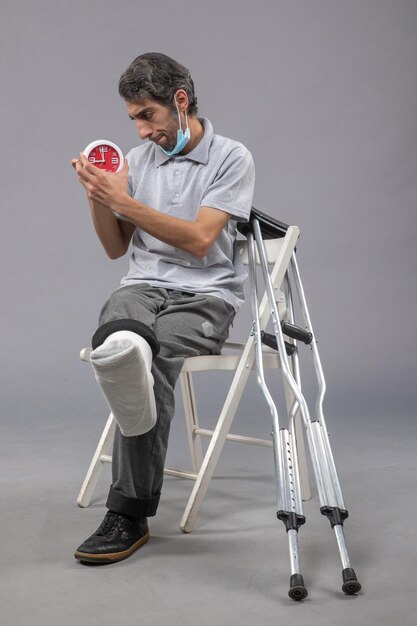
Anyone who’s played sports has dealt with an injury at some point. Usually, you recover and get back on your feet. But sometimes, injuries can be so severe that their effects linger long after you’ve healed.
Long-term injuries aren’t just painful when they happen. They can stick around for years if you don’t take proper care of them, affecting your daily activities and lowering your quality of life. So, it’s crucial to take steps to stay healthy and happy for as long as possible. Here are some tips to help manage injuries, whether you’re currently dealing with one or want to be prepared for the future.
If you get an injury like lower back pain from an accident, you might be eligible for compensation. To do this, find a lawyer who specializes in personal injuries. They can help you get the financial compensation you deserve for the pain and suffering caused by the accident.
Injuries like these often happen due to accidents at home, work, or on the road. One of the common injuries people suffer from is back pain, which can cause long-term discomfort if not treated properly. When doctors treat back pain, they often refer to the lumbar spine, which includes the largest vertebrae from L1 to L5. An injury in this area can severely limit your mobility.
It’s essential not only to see a doctor but also to hire a reputable personal injury lawyer. Both professionals can work together to document your injuries, helping prove your case for compensation.
Not all injuries require physical therapy, but if you have one that could have long-term effects, it might be worth considering. An experienced physical therapist can evaluate your condition and suggest a treatment plan. Physical therapy can help speed up your recovery, strengthen your body, and lessen the chances of your injury getting worse over time.
Your doctor may suggest starting physical therapy as soon as it’s safe. Don’t delay it to avoid complications like nerve damage. Your therapist will create a customized treatment plan for you, and your sessions might begin a few days after your injury stabilizes.
While vices like smoking and drinking may seem to relieve pain temporarily, they can be harmful in the long run. These habits can make you dependent and can negatively affect your recovery. Doctors usually recommend cutting back on tobacco and alcohol when you’re healing from a severe injury. Even though these substances might ease pain to some extent, their harmful effects can outweigh any benefits.
Stress can also have a significant impact on long-term injuries. Doctors often advise patients to lower their stress levels, as added pressure can worsen your condition and slow your recovery. You can reduce stress by identifying discomforts in your life and addressing them. Surround yourself with supportive loved ones or move to a calmer environment. Joining a support group can also be very beneficial, as you can share experiences, learn new pain management strategies, and connect with others who understand what you’re going through.
Injuries can leave you feeling weak and immobile, especially if they involve your limbs or back. While it might be tempting to avoid physical activity to prevent further pain, living a sedentary lifestyle can be counterproductive. Once you’re able to move comfortably, try to exercise regularly. Even 30 minutes of light exercise daily can improve your overall health. If you’re worried about getting hurt again, ask your doctor or physical therapist for exercise recommendations that are safe for you.
Managing chronic pain after an injury is more doable than you might think. Plenty of people are willing to help and offer advice to ensure you can live your best life even after an injury. It takes some effort from you to keep up with both your physical and emotional healing.